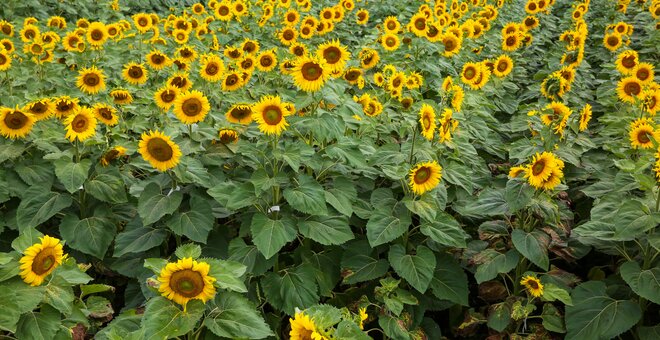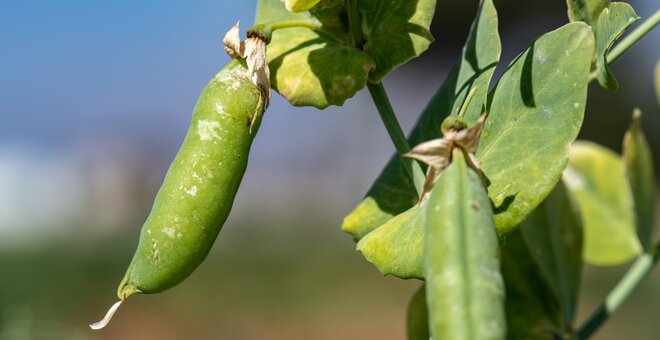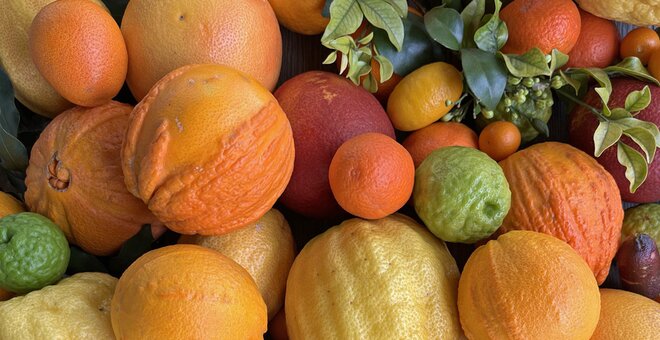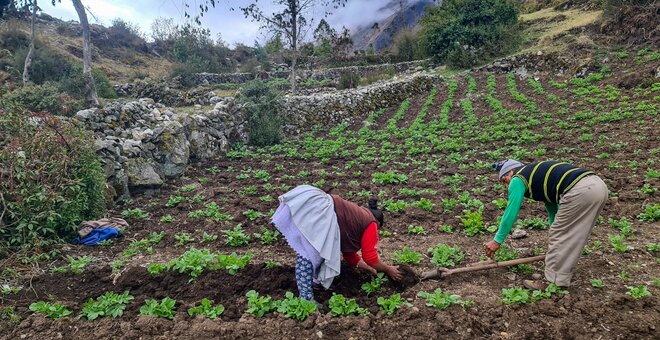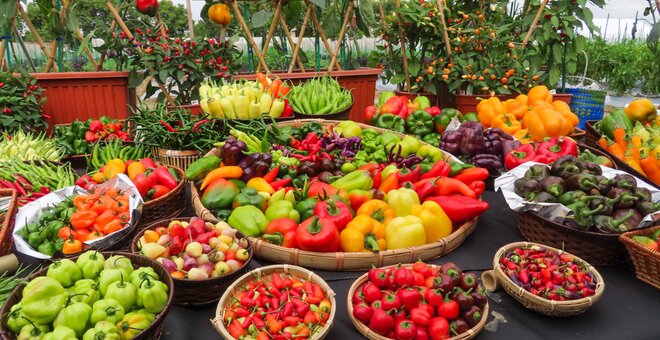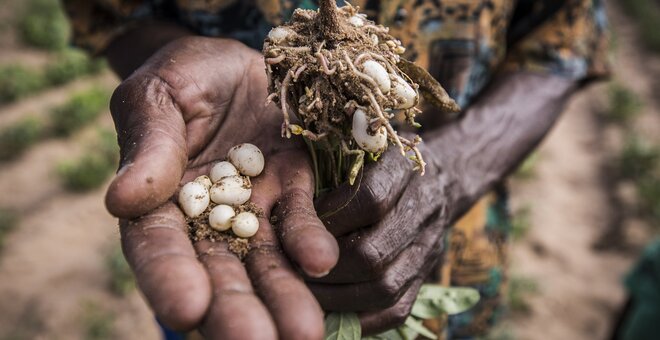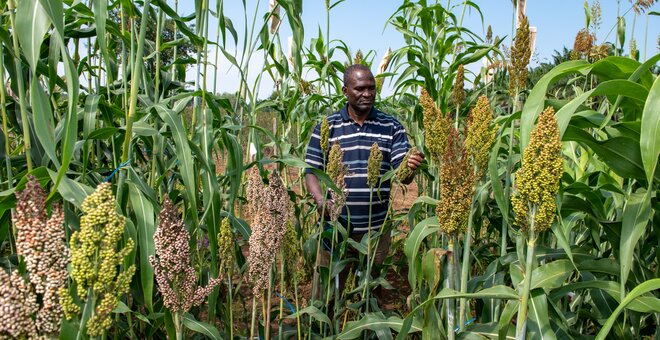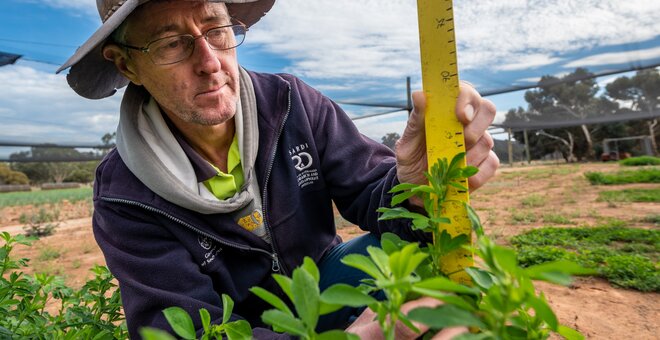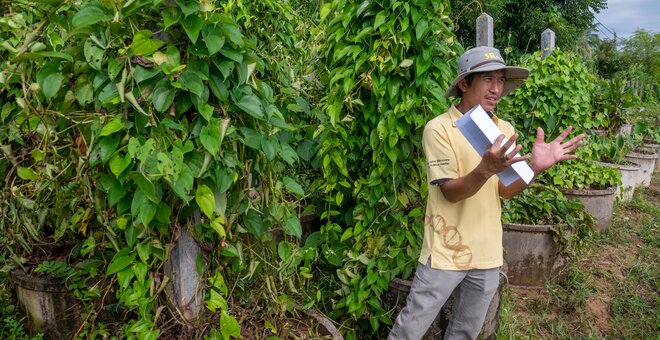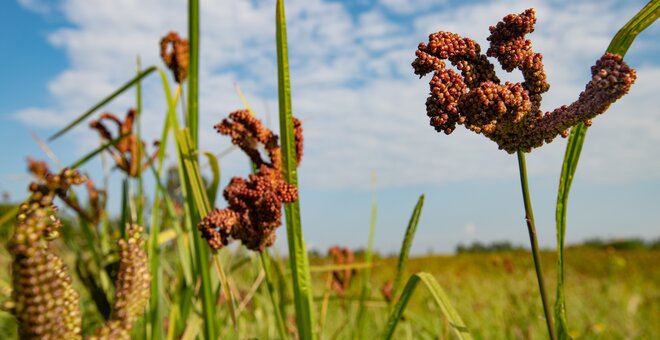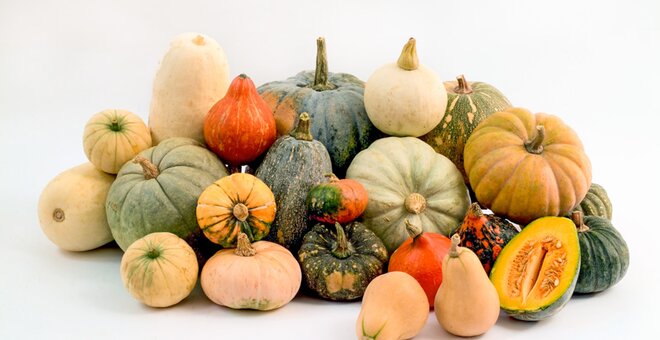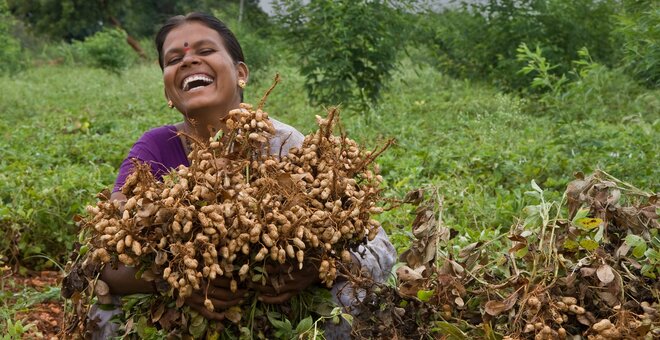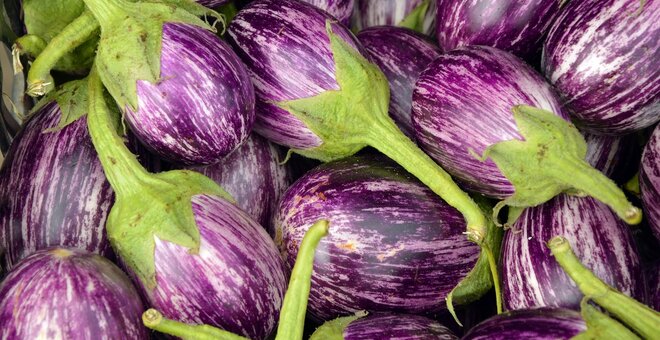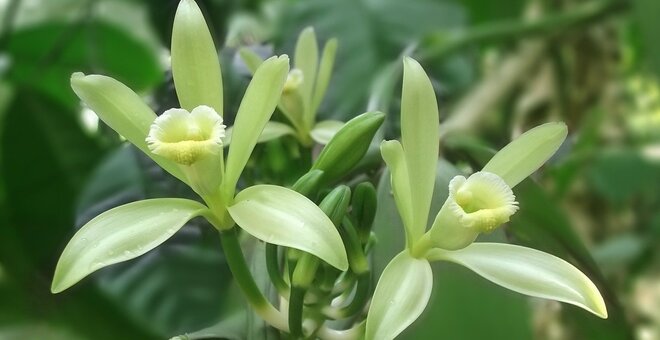Mainstreaming the Global Crop Conservation Strategies in Plant Treaty Processes
Start year: 2023
Status: Ongoing
Thanks to support from the German Federal Ministry of Food and Agriculture (BMEL) and the close collaboration with the Secretariat of the International Treaty on Plant Genetic Resources for Food and Agriculture, the Crop Trust and its partners have been working to mainstream the Global Crop Conservation Strategies in Plant Treaty processes.
Mainstreaming the Global Crop Conservation Strategies in Plant Treaty Processes
Since 2007, the Crop Trust has coordinated the development of 41 global crop conservation strategies (GCCS). The overall aim of these strategies is two-fold: (a) to identify priority collections and actions to strengthen the conservation of plant genetic resources for food and agriculture (PGRFA), and (b) to ensure that conservation activities and priorities are better coordinated among stakeholders (including genebanks and their users) worldwide.
As part of the “Breathing new life into the Global Crop Conservation Strategies” project conducted between 2019 and 2023, the Crop Trust facilitated the development of 15 GCCS. These are publicly available and have been shared with crop experts and genebank curators.
However, there is limited awareness about the GCCS among the stakeholders of the International Treaty on Plant Genetic Resources for Food and Agriculture. Also, there have not been channels to facilitate the flow of information in the GCCS into the Plant Treaty decision-making processes.
To address these limitations The Crop Trust is currently leading a three-year project on “Mainstreaming the Global Crop Conservation Strategies in Plant Treaty Processes.” The project is funded by the German Federal Ministry of Food and Agriculture (BMEL) in close collaboration with the Secretariat of the Plant Treaty. By mainstreaming GCCS in Plant Treaty processes, this project will strengthen both the work of the Plant Treaty and the implementation of the GCCS.
Project activities include: identifying key entry points for the GCCS with regards to the Plant Treaty’s main areas; disseminating information about GCCS in relevant Plant Treaty fora; identifying key collections relevant to the GCCS that have yet to be fully notified to the Plant Treaty as available in the MLS, contact their holders, and support their notification.
The white paper “Mainstreaming Global Crop Conservation Strategies in Plant Treaty Processes” is an output of this project and was published as an information document for the 10th session of the Governing Body of the Plant Treaty (GB10). The white paper includes recommendations regarding a practical arrangement for the leadership of GCCS processes and implementation of their recommendations. These recommendations were discussed at GB10 and the conclusions are found in Resolution 12/2023 Policy Guidance to the Global Crop Diversity Trust. Also, mention of the GCCS was added to the terms of reference for the Ad Hoc Technical Committee on Conservation Sustainable Use (ACSU) of the Plant Treaty.
In 2023 an analysis of key entry points for the GCCS with regard to the Plant Treaty areas of work was completed and presented at the GB10 side event “Strengthening information-based decision-making in PGRFA management: relevance of Global Crop Conservation Strategies and the Plants that Feed the World projects to the International Treaty.”
As part of the activity disseminating information about GCCS in relevant Plant Treaty fora summaries of the GCCS tailored to Plant Treaty stakeholders have been produced.
Dulloo E and Khoury CK. 2023. White paper on Mainstreaming Global Crop Conservation Strategies in Plant Treaty Processes Global Crop Diversity Trust. Bonn, Germany.

The publication of the white paper "Mainstreaming Global Crop Conservation Strategies in Plant Treaty Processes" is an important milestone of this project.
Strategy Summaries
Short summaries and key metrics of the Global Crop Conservation strategies tailored to Plant Treaty stakeholders
Capacity building material
- Video interview: Global Strategy for the Conservation of Potato and the Plant Treaty. Manuela Nagel, from the Leibniz Institute of Plant Genetics and Crop Plant Research (Germany) talks about the Global strategy for the conservation of potato and the Plant Treaty
- Video interview: World Vegetable Center, Global Crop Conservation Strategies and the Plant Treaty. Dr. Maarten van Zonneveld, Head of Genetic Resources at the World Vegetable Center, discusses the relationships among the Crop Conservation Strategies, the African Vegetable Biodiversity Rescue Plan and the International Plant Treaty.
- Video interview: Global Strategy for the Conservation of Brassica Genetic Resources and the Plant Treaty. Dr. Charlotte Allender from the Warwick Genetic Resources Unit (University of Warwick, UK) talks about the Global Strategy for the Conservation of Brassica Genetic Resources and the Plant Treaty.
- Video presentation: Citrus conservation strategy. Dr. Gayle Volk, summarizes the content of the Global Strategy for the Conservation of Citrus genetic resources.
Full-text global crop conservation strategies
Promotional material
Partners & Supporters
This project was funded by the German Federal Ministry of Food and Agriculture (BMEL) and is conducted in close cooperation with the Secretariat of The International Treaty on Plant Genetic Resources for Food and Agriculture (ITPGRFA).



Related news
The Wonderful World of Sunflowers
Think about sunflowers, and there is a good chance that Vincent van Gogh's masterful artworks will leap to mind. His series of sunflower paintings, created in the late 19th century, are timeless representations of the flower's...
6 Nov 2023
Mushy or Not, Peas Need Strategic Support
If you have ever eaten fish and chips in the north of England, you will likely have been confronted with a side order of mushy peas. Depending on where you come from, these are either a delicacy or hideous slop destined for the...
11 Sep 2023
If Life Gives You Lemons ...
Many people will be familiar with the old adage, “If life gives you lemons, make lemonade.” But life did not give us lemons. The lemon is not a naturally occurring fruit, but a cross between a sour orange and a citron. And a sour...
21 Aug 2023
Global Guardians of Potato Diversity
In the highlands of Peru, a group of farmers safeguard their livelihoods and those of future generations. They are conserving the diversity of their staple food: the potato.
Some members of AGUAPAN (Association of Guardians of...
9 Aug 2023
From Broccoli to Pak Choy: Brassicas Need a Global Network
To some people, broccoli is like math: You’re pretty sure that you won’t enjoy it, so you assume that you need to sugar-coat it – or, rather, cheese-coat it – for it to become somewhat palatable.
But what if we were kinder to...
19 Jul 2023
Spicing Up Diets and Livelihoods with Peppers
What behaves like a chameleon, comes in 50 shades of red, green, orange, yellow and even purple, and gets sweeter with age?
It may sound like a creature from a fairy tale, but the real world of plants has an answer all of its...
20 Jun 2023
Extreme Beans: Conserving Vigna
The Crop Trust facilitated the update of a global strategy to conserve the diversity of Vigna and its wild relatives to help ensure food and nutrition security.
Have you ever eaten koki, Hoppin' John, chè đậu trắng, lǜdòu...
31 May 2023
Ensuring the Camel of Crops Keeps Giving
The Crop Trust facilitated the update of a global strategy to conserve the diversity of sorghum and its wild relatives.
The “camel of crops” is a true physiological marvel. It’s one of our toughest cereals and can survive in...
18 May 2023
Change Cows' Diets, Support the Environment
When it comes to sustainability, the livestock sector has a bad reputation. One way to reduce its environmental impact is to breed better forages: the grasses and other plants that are eaten by farm animals. The genetic resources...
4 May 2023
Plan for Bigger, Better Yams
Yields of yams could be boosted—and with them food security—by using their biodiversity more efficiently, according to a strategy for yam conservation facilitated by the Crop Trust.
In the United States and the Caribbean, the...
12 Apr 2023
Millets: Use Them or Lose Them
2023 marks the International Year of Millets – hardy, nutritious crops that are in decline. A recently published global conservation strategy maps out how to keep millets on our plates.
They’re hardy, reliable, rich in...
30 Mar 2023
Protecting Your Pumpkin from Climate Change
'Curcurbits' isn't really a term we use around the dinner table ... but we sure love to eat them. Pumpkins, squash, cucumbers, watermelons, musk melons, chayote ... and don't forget the egusi melons. They are all curcubits, and...
16 Mar 2023
29 Oct 2021
Nuts About Peanuts
The peanut (Arachis hypogaea L.), also known as groundnut, is native to South America but is now grown throughout the tropics and subtropics. There, this delicious legume is a subsistence crop for many, as well as an important...
16 Feb 2023
Ensuring Enough Eggplant for Everyone
The Crop Trust facilitated the development of a global strategy to conserve the diversity of eggplant and its wild relatives to help ensure food and nutrition security.
If there was a contest for the most glamorous vegetable,...
1 Feb 2023
Protecting Vanilla, One of Our Favorite Flavors
Baking enthusiasts everywhere love to talk about vanilla—what type they like, how they use it, and of course, its delicious flavor and aroma.
But the “real” vanilla is under threat.
Vanilla pods are the fruit of orchids in the ...
18 Jan 2023
20 Dec 2021


